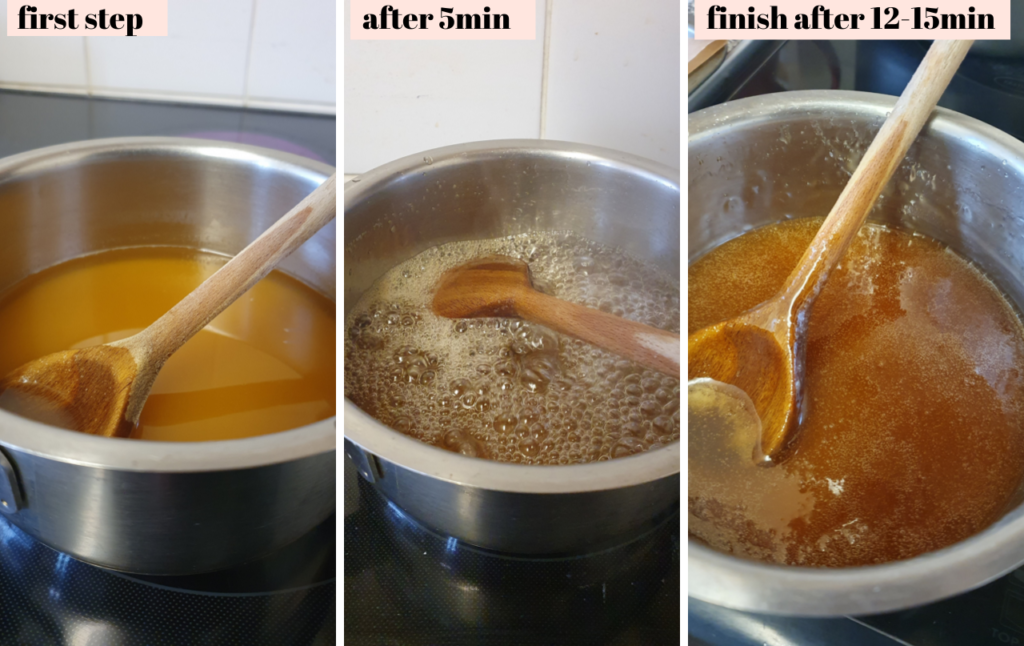Do you have a nagging cough that just won’t go away? Instead of reaching for over-the-counter cough drops that are filled with artificial ingredients, why not try making your own natural and soothing cough drops? In this article, I will guide you through the process of creating DIY Peppermint and Green Tea Cough Drops that are not only delicious but also packed with the health benefits of green tea. So grab your ingredients and let’s get started!
Benefits of Green Tea
Green tea is a popular beverage known for its numerous health benefits. It is rich in antioxidants called polyphenols, which have been shown to boost the immune system and fight off infections. When it comes to coughs and colds, green tea can help soothe the throat and reduce inflammation. It is also a great source of vitamins and minerals that support overall well-being.
Natural Ingredients Used in the Recipe
To make these DIY Green Tea Cough Drops, you will need the following natural ingredients:
- Green Tea: Choose a high-quality organic green tea that is free from additives or fillers. The tea will provide the flavor and health benefits in the cough drops.
- Honey: Honey is well-known for its soothing properties and is often used as a natural cough remedy. It helps to coat the throat and provide relief from irritation.
- Lemon Juice: Lemon juice is rich in vitamin C and antioxidants, which can help to boost the immune system. It also adds a refreshing citrus flavor to the cough drops.
- Ginger: Ginger has antimicrobial and anti-inflammatory properties that can soothe a cough and alleviate congestion. It adds a mild spicy taste to the cough drops.
- Peppermint Tea: Peppermint Tea is known for its ability to relieve cough symptoms and open up the airways. It also provides a pleasant minty flavor to the cough drops.
- Cloves : have potent antibacterial, anti-inflammatory, and antioxidant properties. The herbal infusion might have 5 to 8 cloves added to it.
- Cinnamon : contains anti-inflammatory effects and warms you from the inside out. In the process of making the herbal infusion, add 1 cinnamon stick.
- Sugar : Depending on your preference, you can use either brown or white sugar.
What ingredients will I need to produce homemade cough drops?
In the recipe, there are two parts sugar and one part liquid. You can’t exclude sugar because it is the key component. Regular (granulated) sugar produces the greatest results, I’ve discovered.
Cane sugar also works well, however brown sugar might make the cough drops a little softer since it has more moisture than ordinary (granulated) sugar. I’ve tried producing drops with simply honey, but they never actually set and stayed extremely mushy and sticky.

Tips for Storage and Usage
Cough drops should be stored in sealed containers in a dry, cold environment. Heat and moisture will make them soft and sticky. Small clip-top jars are my preferred container for the drops.
You can make labels with inscriptions—”Cough Drops,” “Get well soon,” or “For you”—so you may attach a thoughtful note to the jars and give them as gifts.
- Keep the cough drops in a cool, dry place away from direct sunlight. Excessive heat or light can cause them to melt or lose their effectiveness.
- When using the cough drops, let one dissolve slowly in your mouth, allowing the natural ingredients to soothe your throat and provide relief from coughing.
- If you prefer a stronger flavor, you can add more peppermint oil or lemon juice to the mixture. Adjust the ingredients according to your taste preferences.
- These DIY Green Tea Cough Drops can also be a great treat for sore throats or as a natural alternative to traditional cough lozenges.
Advice: In place of green tea, you may instead use herbs.
What are the best herbs to use for a cough?
While peppermint and green tea is the star ingredient in these DIY cough drops, there are several other herbs that can also help to alleviate cough symptoms naturally. Here are some of the best herbs to use for a cough:
- Thyme: Thyme is a powerful herb that has antimicrobial properties and can help to relax the airways, making it easier to breathe. It is often used to relieve coughs and congestion.
- Eucalyptus: Eucalyptus leaves or oil can be used to make soothing cough drops. It has expectorant properties, which help to loosen mucus and phlegm.
- Licorice Root: Licorice root has been used for centuries to alleviate coughs and soothe sore throats. It has anti-inflammatory properties and can help to reduce irritation in the throat.
- Marshmallow Root: Marshmallow root forms a soothing gel when mixed with water, which can help to coat and soothe the throat. It is often used to relieve dry coughs.
- Sage is antibacterial and helps to treat a dry cough. On the tongue and throat, its essential oils provide an anti-inflammatory and anti-irritant action.
- Menthol-rich peppermint provides a calming, anti-bacterial, and anti-inflammatory action. I also adore the flavor’s crispness.
By incorporating these herbs into your DIY cough drops, you can create a variety of flavors and enjoy their additional health benefits.

Step-by-Step Instructions
Recipe for Homemade Cough Drops
Natural home-made cough drops might help with sore throats and coughs. These Peppermint and Green Tea DIY cough drops are an excellent home cure to soothe a cough that may accompany a cold, mild throat irritation, or scratchiness. These delicious all-natural drops are made with herbs, honey, lemon juice, and spices.
The herbal infusion’s ingredients
1 cup of 250 ml of water
3 Peppermint tea bag and 2 Green tea bags or a few fresh herbs, three tablespoons of dried herbs ( I like to use 3 MINT BREEZE tea bags )
1 cinnamon stick, 5 cloves, and 3 slices of ginger
Cough Drops Recipe
100 ml (1/3 cup plus 1 1/2 tbsp) of herbal infusion
One cup of caster (granulated) sugar, 200 grammes
1 tablespoon of honey ( I used Manuka honey)
1 tablespoon orange or lemon juice
Icing sugar for coating
Instructions:
1.setting up. Use parchment paper or silicone baking mats to line two baking trays (sheets) or 2 silicon sweets mold (I prefer to use molds for sweets.)
2.Put the herbal infusion together. 250 ml (1 cup) of water should come to a roaring boil. Ginger, spices, dried herbs, or tea bags can also be added. Steep for 10 minutes.
Measure 100 ml (1/3 cup + 1 1/2 tbsp) of the liquid after pouring through a sieve to get rid of the tiny bits. Place aside.
3.Sugar syrup must be cooked. In a large, heavy-bottomed pot, combine the lemon juice, sugar, and herbal infusion. It typically takes 10 to 15 minutes to reach the point when the sugar starts to dissolve and the liquid starts to bubble when heated on high. Continuously stir. Once the mixture reaches the hard crack stage (150°C/300°F on a sugar thermometer), reduce the heat to medium-high and cook for a further 5 to 10 minutes.
Advice: Use the following method to determine the syrup’s consistency if you don’t have a candy thermometer: Pour a small amount of the sugar syrup into the frigid water. Put an end to the cooking process by turning off the heat when you hear a crackling sound and the sugar hardens. Allow the sugar syrup to cool in the water for a few seconds before touching it to prevent burns.
4.Create the cough drops. Drop little quantities of sugar syrup onto the prepared baking sheets (trays) or silicon sweets mold and let cool for 15 to 20 minutes. Carefully reheat the syrup over a moderate burner if it gets too sticky to pour drips until the consistency is pourable once again.
5.Dust the cough drops lightly with icing sugar once they have dried and become cold to the touch. Place the homemade cough drops in sealed jars.
6.One more helpful advice: wash the pot and cooking utensils. Put the cooking utensils in warm water along with the pot to help remove fragments of sticky or hard sugar syrup. Clean as normal after letting sit for a time to allow the sugar to dissolve.

In conclusion, these DIY Green Tea Cough Drops are a natural and effective way to soothe a cough and provide relief from throat irritation. By using high-quality ingredients, such as green tea, honey, and natural flavorings, you can create a delicious and healing remedy for coughs and colds. So next time you’re battling a cough, try making your own cough drops and experience the power of natural remedies. Stay healthy and happy!
You might also like:
10 Effective Remedies for Tickle in Throat
Anti-Inflammatory Ginger and Turmeric Ice Cubes
How to Store Lemons and Lemon Zest in a Fun Way




